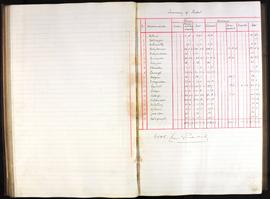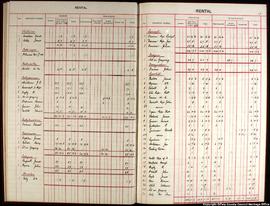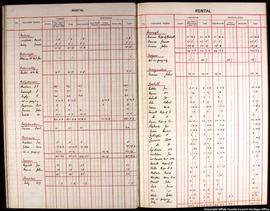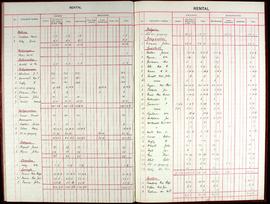Annual report for year ending June 1864 containing details of the rental of the estate and the financial situation relating to the payment of rent. Explains that while the 1863 harvest was an improvement on previous years, it was not enough to ease arrears of rent and that the most impoverished on the estate had even sold their milch cows. Reports that large farms have best withstood the pressure of the previous seasons, middle and small farmers suffered the most, and the labouring classes did not suffer too much as they gained much employment in the drainage works at Ballycollin.
Reports on other large drainage works one one side of the Tullamore Road at Geashill, a large tract of land mainly made up of the farms of surrendered tenants. Also discusses farming and waste farms - 227 acres at Ballycollin and 34 acres at Bawnmore are now under tillage. Referring to the estate buildings, the report discusses improvements to the castle offices, construction of farm offices required by larger tenants, construction of a house for the drainage superintendent and the general poor condition of the village of Killeigh. Also includes a report by forester, Daniel Dewar, on woods and plantations. Further reports that Dewar will be leaving the estate as he was sought by Lord Lovat for a superior position.
Regarding emigration, the report suggests that not as much emigration as anticipated has occurred on the estate due to the 'vigorous opposition from priests', but does report that a considerable number of middle-sized farmers have been compelled to leave the estate for economic reasons.
Drawings in report:
Page 89 'Ancient Monastery Killeigh' - window opes



